Explore below for some of the stories that older people have shared with us, along with interesting articles and information.
If you are interested in writing a post on a topic please email us: info@cotansw.com.au
Australians love to explore whether it is their own back yard or further afield and this we see even more so with mature Australians who often now have the time and resources to travel. According to the latest SOTON study, 67% of mature Australians intend to go on a holiday in the next 12 months [1].
Whilst travelling provides exciting adventures and new experiences there are certain key considerations that we should keep in mind as we travel in older age. Here are some thoughts and tips when considering your next travel adventure.
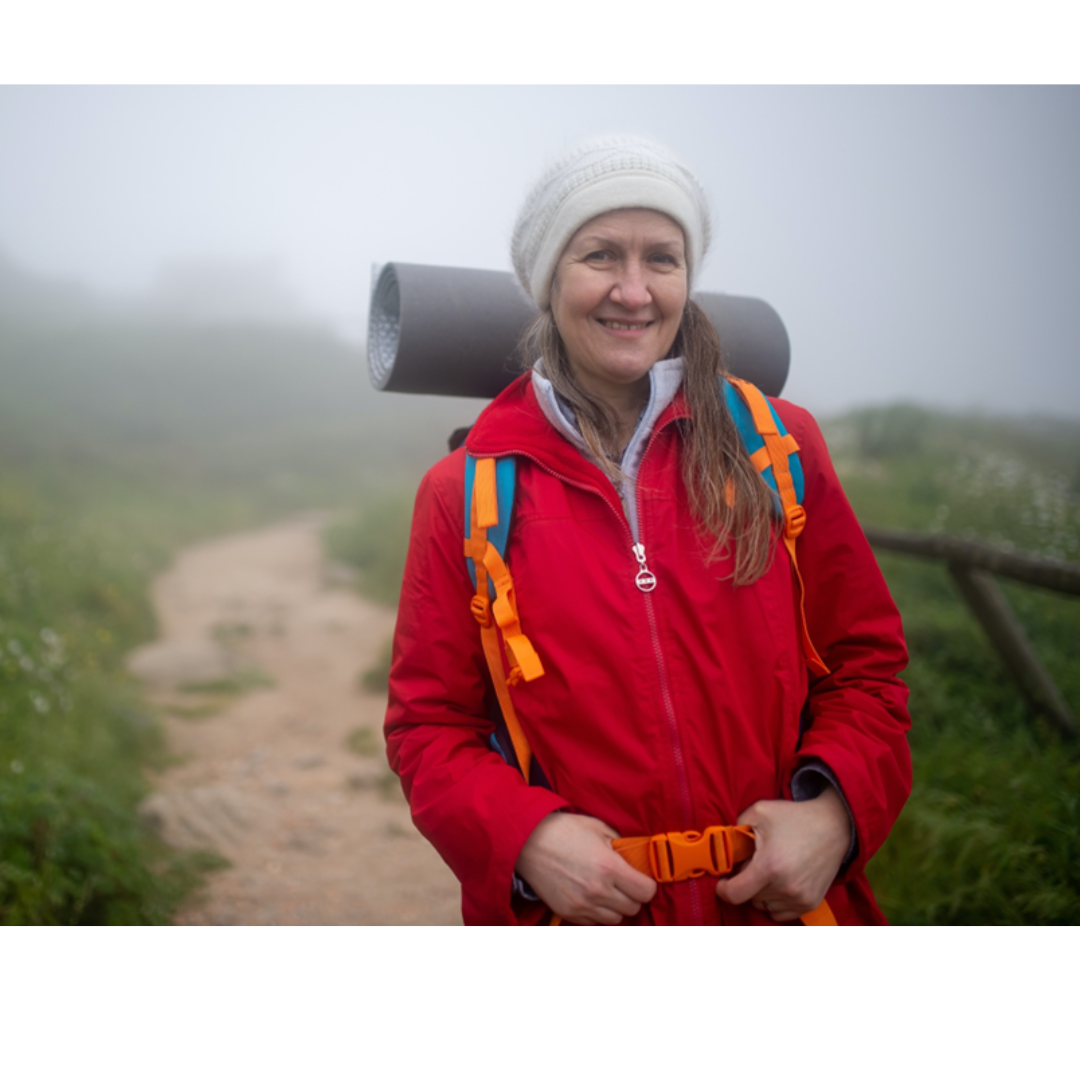
Health and Fitness
Before embarking on a trip, it’s important for mature travellers to assess their health and fitness levels. Consult with a healthcare professional to ensure that you’re physically fit for the journey and discuss any necessary vaccinations or health precautions for your destination.
Travel Insurance
Adequate travel insurance is crucial for travellers of all ages, but it becomes even more important as you age. Make sure your insurance covers any pre-existing medical conditions and provides sufficient coverage for potential medical emergencies that may arise.
Choosing Destinations
Consider destinations that offer the right balance of relaxation, cultural experiences, and physical activity to suit your needs. Some mature travellers prefer slower-paced itineraries with plenty of time for sightseeing and relaxation whilst others prefer more active or adventurous pursuits.
Travel Style and Cost
Choose a travel style that suits your preferences. Whether it’s guided group tours, independent travel, road or train trips, cruises, or all-inclusive resorts, pick an option that aligns with your interests, comfort level and personal circumstances.
Consider the budget for your travel. COTA Australia found in their SOTON research that 54% of those who are not intending to take a holiday overseas or interstate feel it is too expensive to do so [2]. A limited income does not necessarily mean that you cannot travel. It may just result in a more considered approach to activities, style and the destination, for example house swapping or housesitting may be of interest.
In addition, there are a lot of discounted travel options available for mature travellers. For example, NSW Regional Trains offer Country Pensioner Excursion Tickets and Pensioner Travel tickets. Travelling by train may be an affordable and convenient option to consider. Click here for more information.
 Accessibility
Accessibility
Check the accessibility of your chosen destinations and accommodations. Look for information about wheelchair accessibility, availability of elevators, and proximity to attractions.
Pacing
Plan your itinerary with a comfortable pace in mind. Avoid cramming too many activities into a single day and make time for rest and relaxation.
Travel Companions
Decide whether you prefer to travel solo, with a partner, friends, or as part of a group. The companions you choose can significantly impact your travel experience.
Packing and Luggage
Pack wisely and consider using luggage with wheels or backpacks with proper support. Lighten your load as much as possible to make getting around easier.
Medications and Prescriptions
If you’re on any medications, ensure you have an ample supply for the duration of your trip, along with copies of prescriptions in case you need refills.
Communication
Stay connected with loved ones back home. Share your itinerary with family or friends, and consider using communication tools like smartphones or messaging apps to stay in touch during your travels.
Travel Documents
Keep all your important travel documents, such as passports, visas, travel insurance, and emergency contact information, organised and easily accessible, for you and consider leaving a copy them with a responsible person at home.
Using Travel Services
There are various travel agencies you can choose from to tailor a specific travel experience for you. In addition, the National Senior Travel Services is a not-for-profit organisation that provides travel packages and services. Click here for more information.
Remember that travel is a personal experience, and there is certainly no one-size-fits-all approach. Tailor your trip to your interests, preferences, and physical abilities to make the most of your travel adventures.
References:
[1] and [2] SEC Newgate Research (2023) State of the Older Nation, prepared for the Councils on the Ageing Federation. COTA Australia
By Margaret White
At the age of 65, I became redundant. Just like that. I awoke one day, a respected and self-respecting professional with valued expertise and experience. I went to bed redundant. Superfluous, according to my old Oxford dictionary. On the scrap heap, according to my own inner voice.
Self-pity is unhelpful but there is a difference, psychologically, between retiring in your own time to enjoy a well-earned rest and suddenly being told that you are redundant.
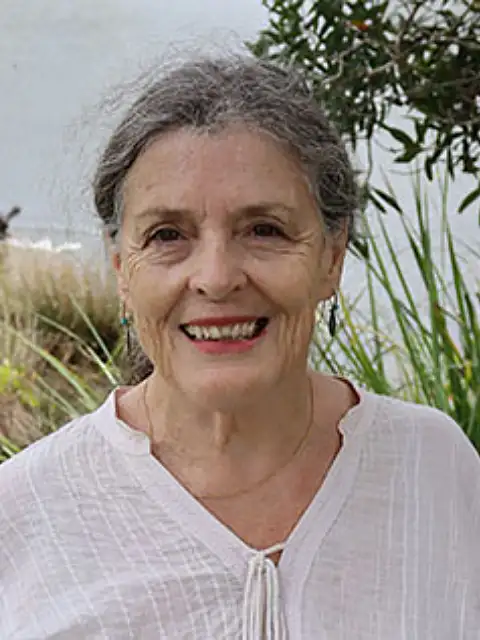
The rest of my life yawned before me like a dark, very empty cavern, into which I promptly fell. My two colleagues, also older women and redundant, fell into holes of their own. We were all too hurt and humiliated to offer each other much consolation.
Our workplace was being restructured and we had to apply for the positions we had all held for years. After interviews, psychometric tests and a wait of many nail-biting months, we were told that none of us had the capabilities needed to perform the role.
After 18 years in the job? What capabilities did I lack? They couldn’t say. The role was changing, and the new role description had not yet been finalised. Lose/lose. Possibly even unlawful, but we couldn’t risk our redundancy payments to find out and our union wasn’t encouraging.
We weren’t tired or out of date. We were passionate about our work and had maintained our professional expertise, often at our own expense. Our clients rewarded us with thanks and glowing reports. But, as one Board member reportedly said: ‘Some people have just been around too long’.
Redundant is a harsh word. A friend who put his hand up for a voluntary redundancy told me how shocked he was when his offer was accepted. He hadn’t expected that his services would be so readily dispensed with!
Redundancy is also much harder for older people to bounce back from. Ageism may well have been the reason we were made redundant and it poses an almost insurmountable barrier to finding a new job. None of us has been successful, so far.
I wasn’t planning to retire. My work was challenging, enjoyable and meaningful. Unfortunately, this meant I wasn’t prepared. I still can’t decide if I’m retired or unemployed. Everything I do still feels like killing time or working on a hobby. Only paid employment, using my hard-won skills and qualifications, would make me feel like a productive member of society.
I’ll get there, I’m sure. Keeping one eye on the job market, I’ll regain my self-respect, find meaning and purpose in life and build an identity for myself that doesn’t depend on the job I do. I know I must stay socially engaged and keep physically and mentally active, but knowing and doing are poles apart when depression saps your energy.
I know I can contribute in other ways and I will, in time. I was an endurance athlete until my late 50s and sometimes wondered why I was putting myself through so much effort. Now I know. I was training for times like this. I’ll dig deeper and eventually, painfully, I’ll find the strength to succeed.
Age discrimination is, of course, unlawful. There is legal action you can take, but it’s hard for individuals who have just taken a confidence-sapping blow to stand up for themselves, and difficult to prove. It’s systemic, cultural change we need.
Ageism is entrenched in Australian culture and will take time to eradicate. Our generation of over 60s has a unique opportunity to contribute to change. We’re the largest cohort of older people ever. We’re also the fittest and best educated.
We deserve respect and we must demand it. We can stand up for ourselves and each other and when we’re struggling, dig deep. We’re all much stronger than we know.
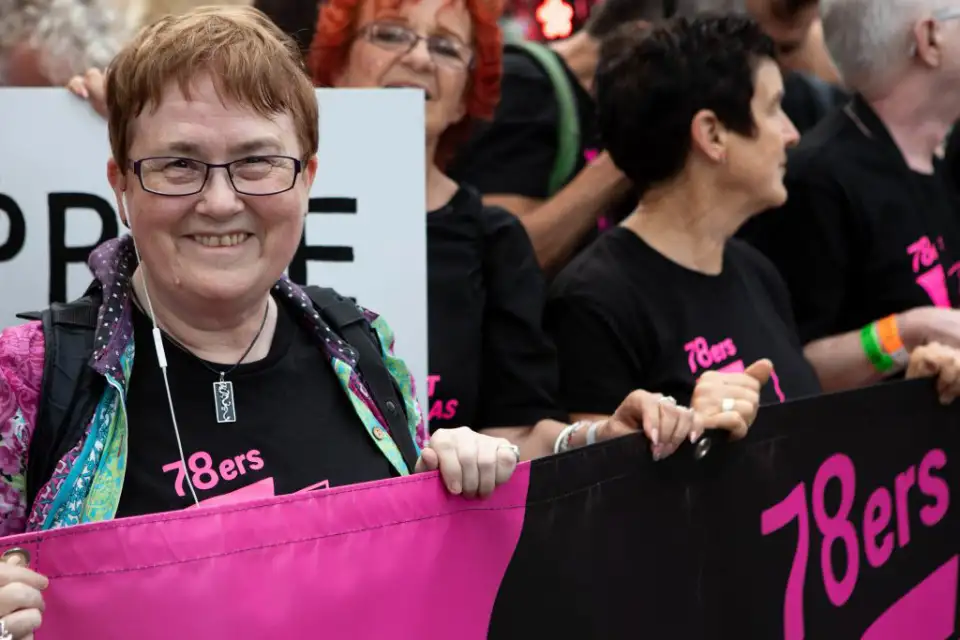
‘In 1978 I was a 26-year-old public servant, involved in gay and lesbian groups in Sydney,’ Diane says. ‘We wanted to commemorate the anniversary of the Stonewall uprising in New York, so we organised a number of events, including a street festival in the evening.’
The organisers had a permit for the street festival, but when they got to the bottom of Oxford Street they were met by a squad of police who, according to Diane, ‘tried to get rid of us by taking the keys out of the truck’ that was carrying the sound system. The revellers decamped to Kings Cross, but found their path blocked by police who then ‘laid into’ them and arrested 53 people.
‘A big momentum came out of the first Mardi Gras that went on into the 1980s,’ Diane said. ‘There were protests against the trials of the people who were arrested, and more arrests. Law reform got a boost, and the Summary Offences Act, under which arrests were made, was repealed in 1979. And male homosexuality was finally legalised in 1984.’
A second Mardi Gras was held the following year, and thus a tradition was born. Diane says it’s an honour to be one of the original 78ers, who usually come second at the front of the parade after the First Nations float. They have also led the parade on major anniversaries.
‘It’s lovely to be recognised,’ she said. ‘The Mardi Gras is still a visible beacon that being LGBTIQ (lesbian, gay, bisexual, transgender, intersex, queer) is OK. Things aren’t too bad in Australia, but in a number of countries in our region it’s still 1978 or even worse!’
‘And there are still young people who are being bullied for being LGBTIQ in Australia too. I’m particularly concerned about the more conservative religious influence in some areas – LGBTIQ young people in those communities are particularly vulnerable.’
Diane says that the recent debate about gay marriage was very upsetting for her community. ‘A lot of the more fragile people took a real battering,’ she said. ‘And I imagine we’re in for another round of that with the Religious Freedom Bill.’
Still working now as a training and communications consultant, Diane is aware as an older lesbian that many in her community are also financially vulnerable. ‘If you are a single woman, and you’ve worked in a poorly paid caring profession for example, you may not have a lot of super.’
‘And there’s a big difference between owning a house and renting, particularly if you don’t have a job. I have several friends who are on unemployment benefits and living in rented accommodation, and they are having a lot of trouble.’
Isolation is also an issue, with many in the community moving out of town to find cheaper housing. ‘Social networks are more important if you don’t have children, which many lesbian women of my generation don’t,’ she said. ‘It was more difficult then, and women who left a heterosexual marriage often lost custody of their children.’
Asked what she thinks are the main differences for young gay people now, Diane says that overall society is more supportive. ‘And young people’s friendship groups are more mixed now, gay and straight,’ she said. ‘In my day we stuck more to our own tribes. So now there aren’t so many specifically LGBTIQ venues, as they all go to the same places.’
After all these years, Diane still enjoys regular meetings with her fellow 78ers and takes part in their events. Her recipe for a successful later life echoes similar ones we have discussed in the newsletter recently: keep your hand in at work, as you never know what will happen; keep active; and maintain your social networks to avoid isolation.
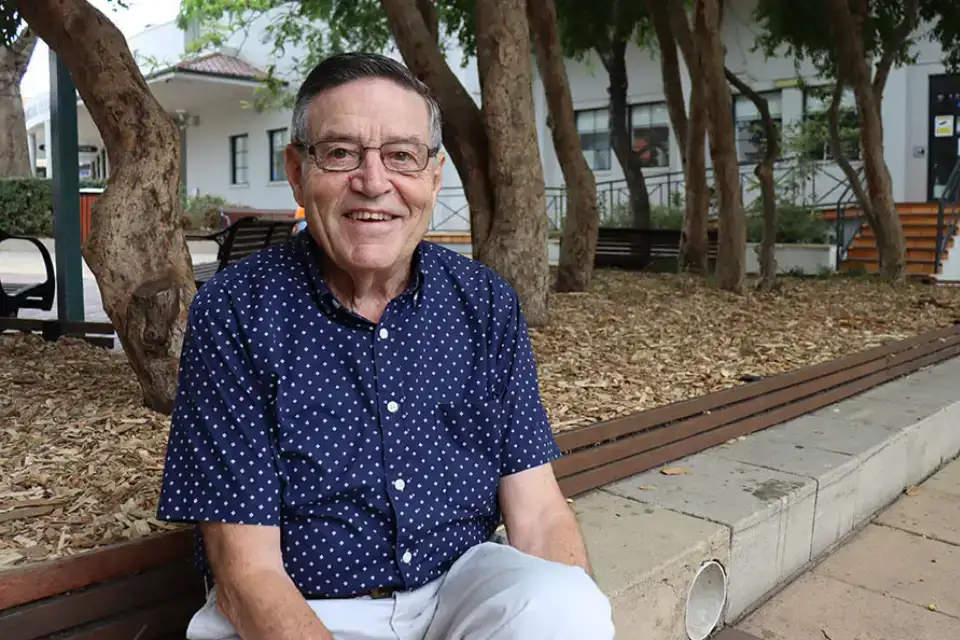
‘It’s the most rewarding thing I’ve done,’ says Graham Whittaker. ‘I get enormous satisfaction from seeing these children blossom.’
Graham is talking about mentoring with the Raise Foundation, which provides youth mentoring to school students in six states including NSW. Raise stands for: Resilience and relationships; Asking trusted adults for help; Increasing confidence and coping skills; Setting and achieving goals; and Engaging with education and employment.
Graham had worked in the insurance industry and retired relatively young after a corporate takeover. As a teenager he had benefitted from the guidance he received at a church youth group, and he wanted to help other young people.
He volunteered for many years with the Salvation Army as a youth and suicide counsellor, but then the centre he was working at closed down and he was looking for a new project. ‘I saw an ad in a magazine for Raise, but I thought I would be too old,’ he said. ‘In the end I decided to give it a go, and my age hasn’t been mentioned once!’
Potential mentors must undertake compulsory checks, a telephone interview and training in youth mentoring before they start work. Graham says he was a bit worried about the training too. ‘I hadn’t done anything like that since I left school,’ he said, ‘but in the end I loved it!’
The program generally operates with year 8 and 9 students, and each mentor works with one mentee for the entire year. Mentors and mentees are matched after an initial group meeting attended by all the potential mentors and mentees at each school.
Likely mentees are students who have been identified by the school as not reaching their potential. Graham says the level of interest tends to increase once the students realise that it will get them out of school for a while!
The mentors spend an hour per week with their mentee. They follow a program which guides the sessions, and prompts the mentees to think about themselves and where they’re going with their lives.
The sessions also vary according to the individual needs of the mentee and the events in their life. Some of the students come from challenging family backgrounds, and the mentors provide a more neutral and less emotionally charged environment for them to discuss issues of concern.
Graham has now had four mentees, and has seen changes in all of them. ‘My first guy, he was initially so introverted that he hardly raised his head,’ he said. ‘By the end of the year he was a changed person, and he said “Graham, thank you for helping me come to believe in myself”. A few years later he was a school prefect.’
Graham encourages everyone to consider the Raise program. ‘People say, “Oh I wouldn’t know what to talk about”, but I tell them you don’t have to say anything,’ he said. ‘You just need to be a good listener, and by the third week the kids will be telling you their whole life story! Or people think they are too old like I did, but you have the life experience that the young people don’t. And the training is excellent in giving you confidence.’
Graham believes that keeping active is the key to successful retirement. He has kept his hand in professionally, and is currently working one day per week at a friend’s insurance brokerage.
He also acts as a Juvenile Support Worker with NSW Police, which involves talking to young people who have been apprehended by police and acting as their responsible adult in interviews when their parents are unavailable. This demands quite a lot of him, with an average of one callout per week, often in the middle of the night and lasting some hours. As a result all his volunteering activities, he was chosen as the Northern Beaches Citizen of the Year in 2019.
For Graham, it’s all part of making the most out of life.
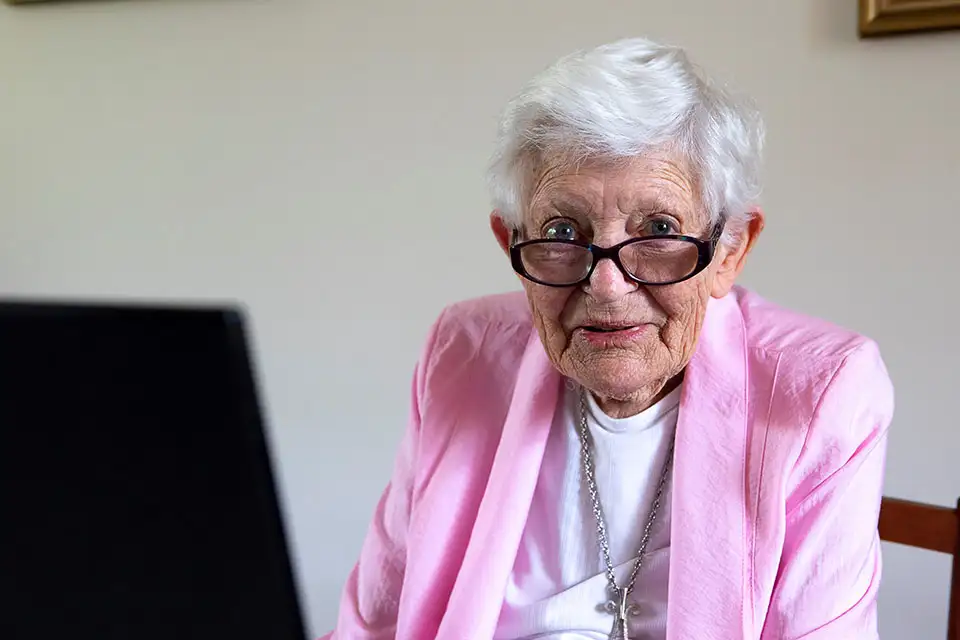
COTA NSW Advocate Val Fell says she is “probably” the oldest person undertaking an online Bachelor of Dementia Care degree from the University of Tasmania. It is likely, as at the time of writing she had just celebrated her 90th birthday, for which she received cards from both Scott Morrison and Bill Shorten.
Val’s path to studying again began when her husband Ian was diagnosed with dementia in 2006. He had been a Fairfax journalist for 40 years, retiring as the General Manager of the Illawarra Mercury. In the early 2000s Val noticed his behaviour with his woodworking hobby was becoming obsessive. She had two older brothers-in-law who had dementia and knew the signs.
‘I was very sad to think that we wouldn’t be able to do all the things we had planned,’ she said. ‘I also felt angry because we both became socially isolated due to the stigma around dementia. People would ask after Ian, and I would suggest that they come to see him, but no-one did.’
Early on, Val sought out a support group for carers of people with dementia. She says this gave her a lot of help, particularly from former carers. Some people couldn’t come on the day that group was held, so after Ian died in 2013, Val decided to set up her own group.
‘I wanted to help other people as I had been helped,’ she said, ‘and it snowballed from there. People were asking questions that I couldn’t give immediate answers to, and I realised I needed more knowledge to run the group with confidence.’ She took some short courses at the university, and after she completed those, they suggested she move into the bachelor’s degree.
Hearing Val’s story, it’s clear that she’s always been active. You might even call her an ‘activist’, and certainly an advocate for the causes that come her way. When asked what drives her, she said: ‘My son said: “My mother has a sense of social justice.”’
The eighth of 11 children, Val did well in maths and chemistry at school and had the opportunity to further her studies at Sydney university, the first in her family to do so. ‘I wanted to be a research chemist,’ she said, ‘but once I got there I liked the maths more.’ There were very few women students, particularly as there was a big influx of servicemen after the Second World War, but Val says she never had any problems.
She initially lived at the Country Women’s Club in Kings Cross. ‘It wasn’t sleazy then, although we did have a brothel down the road, it was more bohemian,’ she said. ‘This group of girls from the country would go down to the Arabian café and mingle with all these writers and artists!’
After a few years teaching maths in a girls’ boarding school, Val and a friend travelled by ship to London. There she got a job as a statistician for a project called the Economic Survey of the Cocoa-Producing Areas of Nigeria. She also studied to become a Member of the Association of Incorporated Statisticians.
Later she worked for food manufacturer J. Lyons & Co, doing market research. ‘I saw my first computer there in 1953,’ she said. ‘It was called LEO, Lyons Electronic Office, and it took up an entire floor of the building!’
After travelling around Europe in an old Austin, Val came home and married Ian. She continued to work in market research while bringing up four children, running her own business from home. She was active in the P&C at the children’s school, and became Country Vice-President of the Federation of P&C Associations. She was also ‘the token parent’ on various committees on education matters.
After other community work such as being on the committee for the Wollongong Eisteddfod, Val found her way to COTA NSW. ‘I was already acting as a dementia advocate when Ian was still alive,’ she said. ‘Someone asked me if I’d like to be a volunteer peer educator with COTA, and since then I’ve done sessions on internet safety and consumer directed care.’
As well as working on her degree, running her support group and continuing her dementia advocacy, Val will undertake further peer education and provide one-on-one support as part of COTA NSW’s new Aged Care Navigator Trial in Wollongong. ‘Navigating aged care is an overwhelming project for most people,’ she said. ‘Many people with dementia and their carers are not tech-savvy. I’ll be helping people to understand the system.’
Val has also been working with Dr Lyn Phillipson at the University of Wollongong, and was looking forward to going to the Australian Dementia Forum in Hobart in June 2019 to do a presentation on respite care. ‘Respite care is an important part of the dementia journey,’ she said. ‘We want to encourage people to re-think their approach to it, in terms of how it is provided and how it is used.’
What is Val’s recipe for successful ageing? ‘Stay active mentally and physically, continue to learn new things, and don’t become socially isolated,’ she said. ‘And be moderate with alcohol!’
By Gregory Allen
Our life journey presents many celebrated milestones. Retirement whether planned or sudden, is often overlooked as one that can change a person and their future.
Psychologists advise that our retirement activities can be defined as being in one of three categories: purposeful, hobbies or maintenance. Retirement dramatically reshuffled these for me.
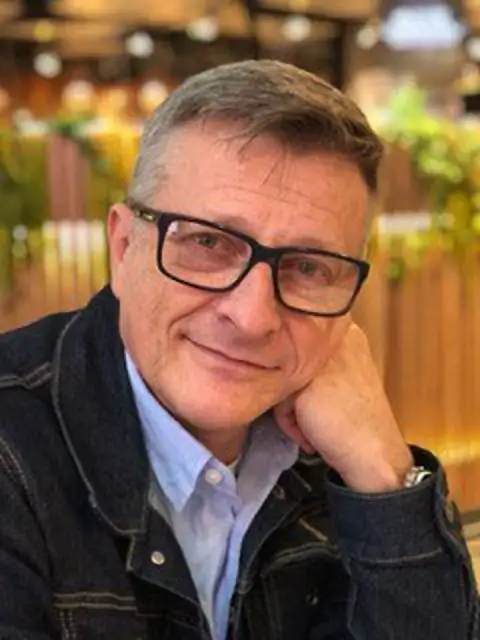
Without a job, I lost my purpose. I had no ‘tribe’, authority, schedule for the day, community stature or career identity as a result, my efforts were now focused on one area. I become obsessed with ‘maintenance’, health, cleaning, handy-work or redecorating. Something was going to break… my body or the house.
With this new awareness and after a short period of research, volunteering came up as a possible solution to my potentially wrecked home and impending divorce.
I started with an audit of my skills, beliefs and interests and with some arrogance, I commenced the search for those worthy of my experience, skills and labor, this quickly turned to “Does anyone value what I can offer?”
The arduous applications, slow responses and lack of interest from organisations triggered my internal voice to be one of self-doubt and anger. I needed to reassess my strategy while avoiding the growing tide of emotions that could lead to inaction and defeat.
What was I experiencing? Well to begin, I hadn’t had to apply for anything for many years and I was now the new kid in the market and not the decision-maker any longer. I soon realised that it was a fear of rejection and a slightly dented ego that I needed to manage. I also needed to find the opportunity, sell my skills and embrace being new and unknown. The risk of embarrassment was high as with any new venture… and I didn’t have to wait long.
On applications my answer to ‘Age’ seamed to be the ultimate door slammer. No response could have been the instigator of my anger but I think the ambiguity was the real cause… not knowing. Was I paranoid? It’s time to apply the same patient maturity that I employed at work.
I found that the magic of the telephone isn’t totally lost in this era of email and texting. Contact people in the organisations and charities were mostly happy to engage and explain the exhibitions, volunteer opportunities or classes. Although I have had to adopt the role of a newcomer and find my place, I managed to keep my mouth shut at all the appropriate times and avoid sounding like a know-it-all.
My search for purpose and a sense of place after retirement continues but I’ve gained greater awareness of what I need to do and found the direction to start the journey. I’ll share the organization that, in my experience, engaged with new volunteers or members in a respectful and professional manner. These include: Art Gallery Society NSW, AIDS Council of NSW (ACON), Cancer Council NSW and City of Sydney Libraries and of course COTA.
Get involved with COTA campaigns
COTA NSW is working with older people in NSW to speak about their concerns and needs, and make sure their voices are heard.